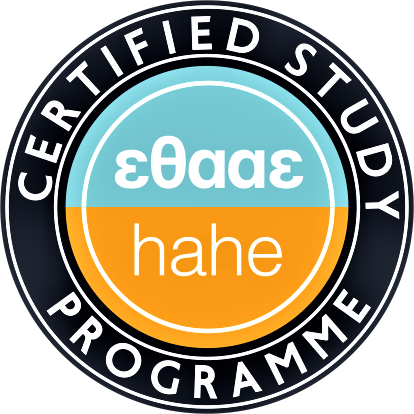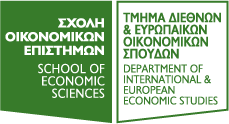FAQs
DIEES was founded in 1990 in response to the new conditions and educational needs that emerged as a result of the country’s participation in the European integration process.
The department offers a multi-disciplinary education and training for students who are interested in obtaining a deeper understanding of developments in the international and European environment, since Greece’s membership in the European Union creates the need to expand students’ knowledge and skills on issues of European integration and its interaction with the global arena.
The department is oriented toward areas of economics that focus on the behaviour of markets, firms, individuals and governments; on international relations; on quantitative methods; and generally on the social, political and institutional dimensions of the economy. It places special emphasis on topics concerning the economy, institutions and policies of the European Union.
Undergraduate Programme
Students that are enrolled in the Department’s Undergraduate Programme have the opportunity to choose one of the two specializations offered by the department:
- International Economics and Finance
- International and European Political Economy
Each year the Department accepts a small number of students (approximately 125), which enables faculty members to apply state-of-the-art teaching methods, including tutoring sessions in certain courses (e.g., for problem-solving in Quantitative Methods); tutorials for discussing conceptual issues and mastering analytical techniques in Microeconomics and Macroeconomics, which include submission of written assignments; and the submission of a senior essay in the final year of studies.
Apart from the computer and network facilities available to all students at the University, the Department maintains a fully-equipped computer laboratory (EUROLAB), which offers students access to Internet services and software packages to gather information and conduct statistical analyses for their studies and research.
The DIEES Undergraduate Programme provides its students the opportunity to obtain multi-disciplinary knowledge and skills leading to very promising future career prospects in both the private and public sector. Graduates can pursue a career in banks, financial institutions, corporations, international organisations, and the European Union. They can also continue studies at the postgraduate level that could lead to a career in academia and research in Greek or foreign institutions.
Postgraduate Programme
After completing the undergraduate programme, those who wish to continue their studies at the postgraduate level can apply to one of the Master’s Programmes available at the department, or to its PhD Programme. The department offers the following Master’s Programmes:
- Full-time Master’s Programme
- MSc in International Economics and Finance
- MSc in European Economic Policy - MSc in European Studies (Part-time programme)
- MSc in Finance and Banking (in collaboration with the Department of Economics) (Part-time programme)
- MSc in Public Policy and Public Management (in collaboration with the Department of Economics and the Department of Management Studies and Technology) (Part-time programme)
- MSc in International Shipping, Finance and Management (in collaboration with the Departments of Accounting and Finance and of Management Studies and Technology) (Full-time and Part-time in English)
Faculty Members
The faculty members who teach at the department have degrees from distinguished universities worldwide and have received international distinctions for their publications





